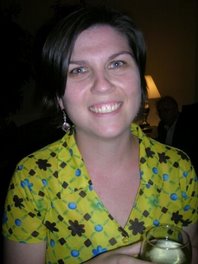A public radio colleague, who's shoulders many of us stand on, said to me, "We're teaching the next generation there's one way of doing journalism. There are other ways of doing journalism."
We were talking about community engagement, and how it stands 180 degrees from the one and done model of reporting. He's been a practitioner of engaging communities to reach the people public isn't reaching and isn't connecting to very well. On a national scale, NPR is making an effort in effort in coverage of diverse communities with Codeswitch, but this work is built upon the shoulders of many others community engagement practitioners, and their general managers, who've spent the time and resources to develop trust over time with communities who've perceived bias and/or exclusion.
Reporters and their editors regularly dismiss this perception and indeed embrace it as a veiled compliment as doing their job well. "When everybody hates us, that means we're fair" is the bumper sticker response towards criticism of how journalists cover sticky issues of race, gender and class in America.
I'm not suggesting that the metric for a journalistic job well done is that communities adore you. What I, and another engagement practitioners would say is that community engagement is a tool to cover communities more effectively and more efficiently. The metric to look at then is how many of your new sources reflect the census data of your community; how many are on the air and how often? NPR is taking a tactical view of with Codeswitch, but at the station level, it's an institutional opportunity to think about how to cultivate long term relationships that become more than the one and done story.
That's the other way of doing journalism: to facilitate, to convene, to curate and in the process, REPORT. These activities has previously been compartmentalized. Events people did the convening; social media people are the curators and the legacy reporters are...reporting. What it means for institutions is that all of these people now need to collaborate. It also means for their managers and executives that they need to be thinking strategically about the day to day activities of their convener, curators and reporters.
Most public radio stations are in still in one and done mode, and I say at their peril. People are hungry for institutions they can trust (note: I did not say brand). If you can institutionally develop relationships (re: partnerships) in your community that result in content that tells a full, complex and yes, accurate story about the community, they will support you in turn, even when the story is negative.
The one and done news process is killing trust with our communities. Community engagement can build it and rebuild it so that our news content remains credible for the future.
Tuesday, July 2, 2013
Subscribe to:
Post Comments (Atom)

No comments:
Post a Comment